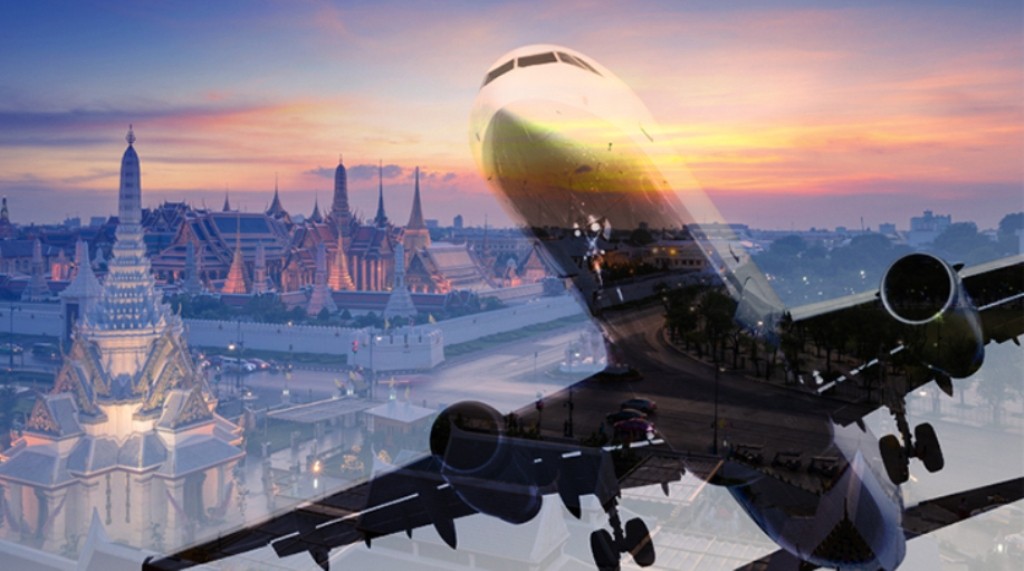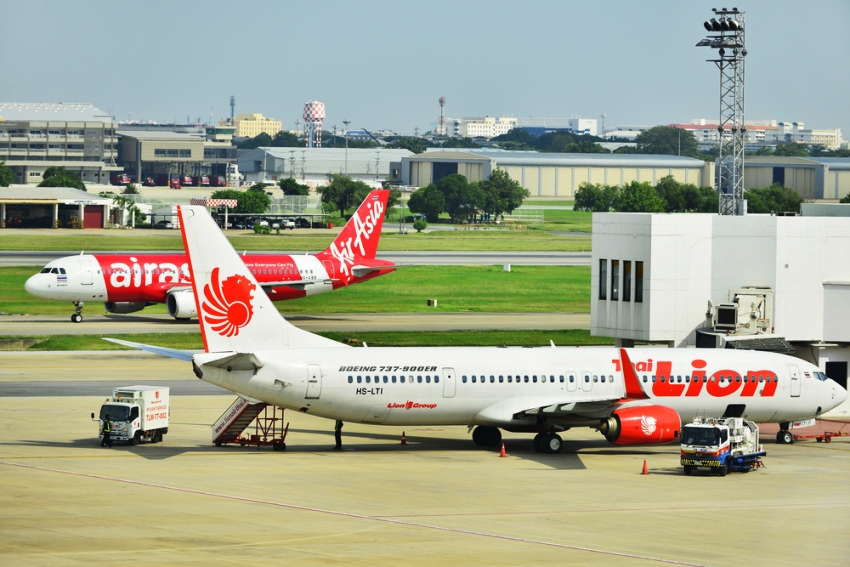Airfare rates on three of Thailand’s busiest domestic routes are to be reduced by up to 14% for the Songkran 2024 holiday beginning this Friday, according to Thailand’s transportation ministry.
Mr. Suriya Juangroongruangkit, Thailand’s Transport Minister, said that domestic airfares on six low-cost airlines flying between Bangkok and Chiang Mai, Krabi, and Phuket will be regulated at 3,000 baht every one-way trip.
Domestic air rates for the Phuket route were 2,501-3,000 baht on Friday, 2,001-2,500 baht for Chiang Mai, and 2,501-3,000 baht for Krabi.
When compared to airfares in Thailand during the New Year celebration, the average cost dropped 9.8% on the Bangkok to Phuket route, 14% on Bangkok-Chiang Mai, and 3.8% on Bangkok-Krabi, Mr Suriya said.
Thailand’s six low-cost carriers serving domestic flights are Thai Smile, Thai AirAsia, Bangkok Airways, Thai Lion Air, Nok Air, and Thai Vietjet.
Thailand’s Domestic Airlines Defend High Airfare Rates
Last month, Thai AirAsia argued ceiling rates should not be reduced because airlines have faced greater costs since the pandemic. However, airlines could help by boosting flights during Songkran 2024 to lower average rates, according to Thai AirAsia CEO Santisuk Klongchaiya.
He stated that since the pandemic, operation costs, including fuel and maintenance, have grown, and the aviation supply system has yet to recover to its 2019 form.
Mr Santisuk stated that it is common for airfares to surge during the Songkran vacation due to high demand during peak season. The Civil Aviation Authority of Thailand (CAAT) regulates airfares and sets ceiling pricing for each route. He stated that Thai AirAsia will maintain acceptable rates for each route, which may vary depending on seasonality and passenger demand.
In reaction to CAAT’s policy, Mr Santisuk stated that the airline will add late-night and early-morning flights as options for passengers to assist reduce average rates. He said that the government should not impose a minimum price for airlines because such a restriction violates free market principles and may have an influence on consumer benefits from airline promotions, such as special rates for new routes.
According to Mr Santisuk, Thai carriers will not resume a pricing strategy or price battles because they have previously failed to provide beneficial operational results. Adding the government might help reduce passenger prices by changing the jet fuel tax rate.
Tansita Akrarittipirom, director of commercial operations at Thai AirAsia, believes low-fare promotions are vital for the Thai market because the majority of the population does not have a lot of disposable income but still wants to travel.
Thai AirAsia expects 15-20% revenue growth this year as it extends its fleet to 60 aircraft with a total seat capacity of 23.3 million. The airline intends to add three A321neo and one A320ceo jets to its inventory, with plans to operate 33 domestic trips and 58 international routes to 18 countries this year.
Sarun Benjanirat, deputy director-general of CAAT, stated that the agency is examining a new ceiling pricing to make it more flexible for all airlines. Mr Sarun stated that a fixed price will be set for each route and should be changed based on each airline’s specific services.
He suggested that factors such as shifting fuel prices may be considered when determining a suitable fee. Mr Sarun expects the new rules to go into effect in the second or third quarter.







